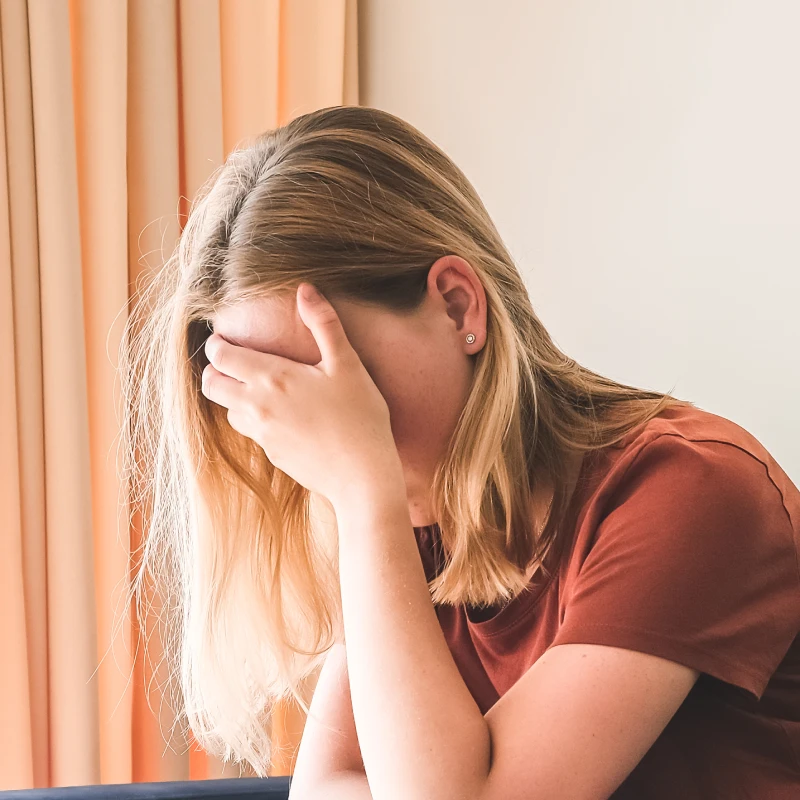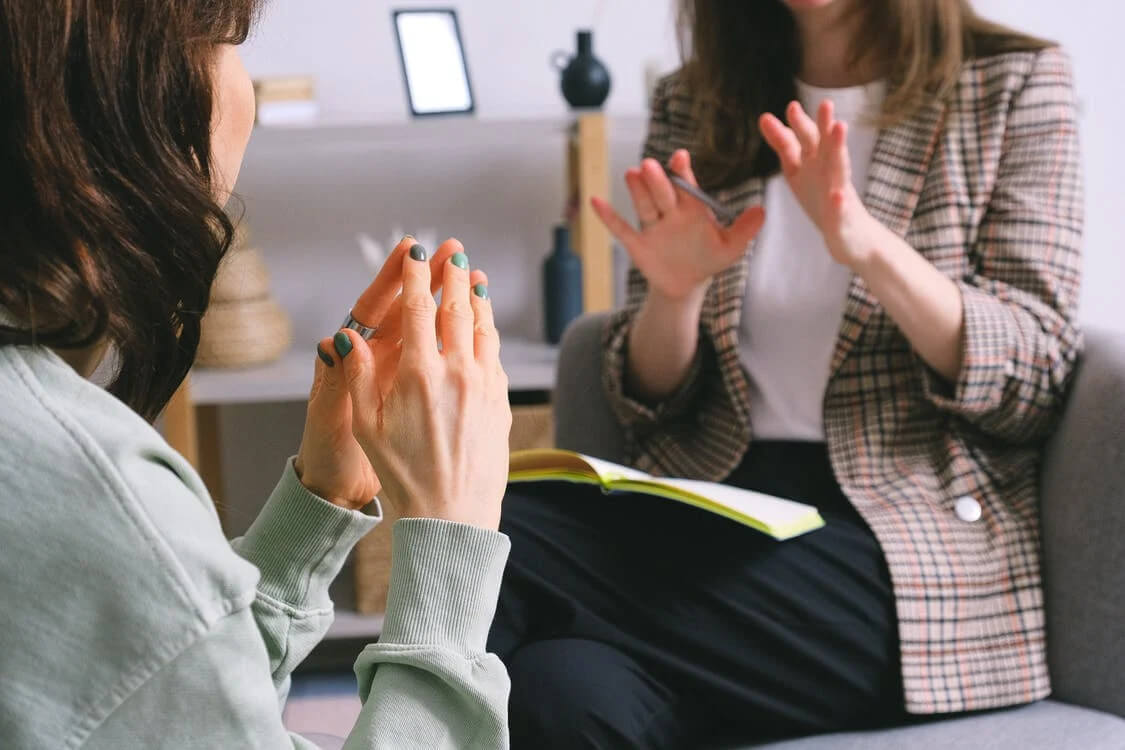
Addiction counselling is a therapeutic relationship that can help you explore your feelings and behaviours with regard to addiction. A counsellor will help you identify the triggers and patterns that lead you into addictive behaviour, and then help you develop better coping mechanisms through insight into your own mind.
Counselling is a way of talking about your problems with a trained professional. It can help you to understand yourself better, and to make changes in your life. This is not something that will create change overnight, but it can be an important part of your recovery if you decide that this is what you want to do.



What is Addiction Counselling?
Addiction counselling is a form of therapy to help you with any physical or process (psychological or behavioural) addictions. Addiction counselling can also be known as drug addiction therapy, substance abuse counselling and drug abuse counselling.
This type of therapy focuses on identifying the issues that led to the development of addiction or dependence, understanding how this affects your life and learning how you can live without your addictive substance(s) of choice.

Signs That You Need Addiction Counselling
The signs of drug or alcohol addiction are not always clear. Sometimes, it is hard to realise that you have a drug addiction. Because of this, you may only get help when someone close to you brings it up first.
This person could be one of your family members or a friend who recognises that there has been a change in your behaviour recently, or maybe you have seen changes in your own behaviour. Some common signs include:


Withdrawing from Life
You’re isolated and withdrawn. You’re not going out or socialising, or you’ve stopped doing things that used to make you happy. You might not be taking care of yourself in the way that you used to. It’s like there’s this black cloud hanging over your head and no amount of sunshine can penetrate it.
You’re on the couch all day, procrastinating too much, or just being unable to find the strength you used to hang onto before you started using.


Physical Health Deteriorating
Your physical health deteriorating is a very common sign of addiction. If you are suffering from addiction you may neglect your physical as you get wrapped up in the cycle of substance use. This can lead to chronic illnesses, such as migraines or even liver damage and heart disease.
There are certain areas of your brain that control how you experience emotions, thoughts and behaviours. When these areas are damaged by alcoholism or drug abuse, this can cause changes in your behaviour patterns that lead you down destructive paths.

Spending Money You Don't Have
If you find yourself spending money you don’t have, this could be a sign of addiction. You may be addicted to a substance or activity that costs money, such as alcohol or gambling. Or perhaps paying for your addiction has become a problem in itself, especially if it causes financial hardship for you or others close to you.

Losing Friends and Family
You may notice that you have lost friends and family, which is another sign of addiction. Losing friends and family can be a painful experience, but remember that it is important to talk to your loved ones about your problems and dependencies so they can help you. Your family and friends can be a great source of support as you work through your recovery process, so don’t hesitate to reach out if you need their help finding a counsellor who specialises in treating addictions.

When to go to Addiction Counselling?
There are many times when you should consider going to addiction treatment or a counselling practice. If you’re ready to stop your addictive behaviour, or if you’ve tried other methods of dealing with your addiction and they haven’t worked, then it’s time for you to seek help.
If you’re addicted to prescription drugs, street drugs, or are suffering from any other form of addiction—from sex to gambling addiction—a therapeitic treatment may help.


Types of Addiction Treatment Therapies
There are a number of different types of treatment options, which can provide you with support in overcoming your addiction. These help you address the underlying causes of your addiction, as well as give you tools for speeding up the recovery process. There can be individual counselling (talking therapies) or group therapy. Some examples include:


Psychodynamic therapy
Psychodynamic therapy is a type of addiction therapy that focuses on understanding the underlying causes of your addiction. It aims to help you understand and work through your past experiences that may be affecting your present thoughts and behaviours. This can include how parents, siblings or important figures in your life treated you, as well as any past traumas.
Psychodynamic therapy works well when you want to explore the reasons behind why you feel dependent on addictive substances. You will have an opportunity to look at how these feelings might have developed over time by discussing relevant issues with a therapist who has been trained in psychotherapy methods for working with addictive disorders (or another suitable practitioner).
During this process, the therapist will help guide you towards looking at times when you were not dependent on drugs and alcohol and what it was like during those times. You will learn how to feel better without using drugs, which will help you make healthier choices in the future.

Counselling
Counselling is a type of talking therapy. Counselling sessions can help you understand and change your behaviour, regain control by managing your feelings and emotions, prevent mood swings and develop skills to deal with life’s challenges. A counsellor listens carefully to what you have to say. You can explore difficulties in an accepting environment without being judged or criticised.

Acceptance and Commitment Therapy
This type of cognitive behaviour therapy assists you in accepting your ideas as well as challenging emotions while committing to your principles. It can help you live with the full range of human experiences, including pain, fear, uncertainty, and frustration. ACT helps you become more aware of your present moment experience through mindfulness training. This means slowing down everyday activities so you’re able to attend to what’s happening in the here and now rather than being caught up in your thoughts about what happened yesterday or might happen tomorrow.
Relapse Prevention Therapy
Relapse prevention therapy is a type of cognitive behavioural therapy. It helps you to identify high-risk situations and develop strategies to avoid or deal with them. It teaches you how to recognise your own cues that may trigger a relapse, such as feeling alone or depressed, and how to cope with these issues in a positive way.


Cognitive Behavioural Therapy
This one is a talking treatment that enables you to comprehend how your ideas, emotions, as well as actions are related to each other. It can help you manage your emotions and improve your mental health.
CBT looks at the way you think about things in order to change any unhelpful or negative patterns of thinking and behaving. It teaches you practical ways of dealing with issues such as mood swings and anxiety, by helping you to challenge any irrational or unhelpful thoughts.
Dialectical Behaviour Therapy
DBT is a type of therapy that can help you with chronic mental health problems. The therapy is based on the idea that the way you think, feel and behave are interconnected. The skills taught in DBT are designed to help you manage your emotions and relationships more effectively.

How Counselling Works In Addiction Recovery
Counselling helps you develop new coping skills so that you can have more control over your behaviour and decisions. It also helps you understand how your thoughts, feelings and behaviour are connected so that they can be managed more effectively.


What happens in addiction counselling?
Addiction counselling is a process where you talk to a counsellor about your addiction. The counsellor will help you to understand the nature of your addictive behaviours and how it affects your life, as well as give advice on how to deal with it. The aims of addiction counselling services are to help you:


Building the Relationship
Counselling is a process of building a trusting relationship and helping you learn more about yourself. During counselling, the counsellor will help you feel safe, understood, and accepted. They will listen carefully to what you say and ask questions that can help you better understand the problem.
Because you may never had this kind of experience before (counselling), it is important that both the counsellor and you work together from the beginning to develop trust so that both of you feel comfortable with each other.
Unpicking what is not true about you
In counselling, the counsellor will help you unpick what is not true about you. This means that they will help you discover what your strengths and weaknesses are. They will also help you understand how some things in life are out of your control and other things are within your control.
Starting to see Beyond the Story
The counsellor will help you to see beyond the story, and see the bigger picture. The counsellor will help you to see that you are not your story, but how your story is created, and who you really beyond this.
Realising how the Mind Works
The counsellor will help you to realise how the mind works. They will help you understand that your thoughts are not facts; they’re just thoughts. They can be helpful or unhelpful, true or false. They can also be destructive—but only if you believe them!
When you realise that your thoughts aren’t real, it becomes easier to see that the story of your life is just a story, too.

Experience more Joy, Freedom, Contentment
The counsellor will help you learn how to be more aware of your thoughts and feelings—and how to manage them in a way that brings about more happiness. They will help you to let go of painful thoughts and find peace and acceptance. This will make it easier for you to live the life that you want.


Role of a Counsellor in Addiction Recovery
The role of a counsellor in addiction recovery is to create a treatment plan to help you grow and change. Counselling can teach you to recognise and avoid potential triggers for drug abuse and provides you with the skills to cope with cravings and urges.
A counsellor will work with you to create goals that are achievable for you. They will support you through this process by providing encouragement and motivation, as well as helping you set realistic goals that can be achieved easily.


How to Find Addiction Counselling
You can find a qualified therapist by searching online, asking family members and friends for recommendations, or asking your doctor if they have any recommendations.
You can also call a local hospital or rehab centre for more information about what services are available in the area. If you don’t feel comfortable talking with someone at a hospital or rehab centre (or if such places are not accessible), then consider calling a local counsellor or mental health professional who may be able to recommend ways of finding help.
Addiction Counselling Facts and Statistics
Addiction counselling is an effective way to help you make changes, deal with issues that are connected to your addiction and learn more about yourself. It’s also one of the most cost-effective treatment approaches that can help you recover from drug or alcohol use problems.
You can get rid of your drug and alcohol addiction forever with the help of a good therapist or drug rehab centre. Research shows that 75% of people with addiction can recover and live full lives if they get proper treatment
Counselling can provide you with the skills and techniques needed to achieve positive change in your life. The process allows you to express yourself openly without criticism or judgement from others – something that may be difficult for you if you’re used to being in an environment where this behaviour is commonplace (e.g., at work).

Question & Answers
ADDICTION COUNSELLING - FAQ
What does an addiction counsellor do?
An addiction counsellor will help you get a different relationship with yourself, your thoughts and emotions, the sensations of your body and everything you have learned to avoid with your coping mechanisms, you can process emotions, talk about things that bother you and follow the process together.
Is there addiction therapy for couples?
It may be better to work separately, often when the relationship gets caught up in therapy there are too many things to discuss, if you are a couple that needs help with addiction, a 2 day intensive would be better, please enquire about this.
What are the direct benefits of addiction counselling?
You will learn to relate to yourself and the outside world in a different way, without the need for coping mechanisms, distraction or avoidance, you will have a better and more joyful experience of being alive.
Are your counsellors in recovery?
Yes we are in long term recovery understand there are multiple ways to recover and also have an in depth spiritual, and psychological understanding of the human mind.
Is addiction counselling helpful for gambling?
Yes addiction counselling is perfect for gambling addiction. It can help you understand what is really going on with the compulsion to gamble, and take risks.
About The Author

Jason Shiers Dip.Psych MBACP
Jason Shiers is a Certified Transformative Coach & Certified Psychotherapist. Jason has been working with addictions and people in recovery for over 25 years now and is always looking towards the innate mental health that is inside everyone.
This therapy is a holistic view of the mind body taking approaches from psychological understandings, somatic practices and spiritual explorations such as non duality and advaita vedanta.
Jason has been cited in multiple articles about addiction, therapy, coaching and mental health and is a regular contributor to many different websites.

Testimonial
In their own words
I had therapy with Jason over the period of 9 months while struggling with a relationship break up. Jason helped me understand myself, my cravings and the darkness I experienced which has really helped me move on and feel free in my life, cannot recommend enough.
Jason really helped me with my eating disorder, I had been struggling my whole life and tried so many other ways to find help but they were all temporary solutions. Jason helped me see how much I contributed towards my own misery, and that I could live a life free of these struggles now.
This was a miraculous experience of seeing a deeper dimension of life. I saw myself as having the weight of the world on my shoulders and it only took a moment to see that it was all just imaginary, I saw myself in a new light, life got easier and more fun immediately.

